
The history of military courts in Pakistan dates back to the early years of its creation. Reasons would differ behind the establishment of military courts on every occasion. However, the raison d’être of setting up military courts in 2015 was the attack on the Army Public School Attack that killed 144 people, including 133 children, on December 16, 2014. Those were trying times for Pakistan. The entire country was reeling under the shadow of terrorism. The civilian courts were releasing terrorists for lack of evidence and weak prosecution. A kind of urgency had set in among every Pakistani, expecting their law enforcement personnel, intelligence agencies and the judicial system to play their role in eliminating terrorism. Since Pakistan’s military was playing a central role in fighting terrorists, especially in the erstwhile tribal areas of the country and in Karachi, where the police-led rangers operation had begun in 2013, they were naturally expected to share the major responsibility of restoring peace in the country. In short, the martyrdom of thousands of military officers and soldiers, the killing of innocent children in Army Public School, and the target killings of scholars, intellectuals and ordinary civilians in Karachi had given enough context to trying civilians involved in terror-related activities in the military courts.
In January 2015, an All Parties Conference agreed to the proposed 21st Constitutional Amendment that allowed changes to the Pakistan Army Act (PAA), extending its jurisdiction for speedy trial of cases under specified acts and providing the constitutional cover with a sunset clause of two years from the date of enactment — January 6, 2015. On January 9, 2015, Pakistan lifted the moratorium on the death penalty as well. Many parliamentarians were against this amendment, but in the face of the country’s exceedingly slow-moving and haywire wheel of justice, they had little choice but to acquiesce to the changes in PAA.
The military courts have had their share of controversies and challenges. A verdict of Peshawar High Courts on October 18, 2018 set aside convictions in 75 military court cases. However, the Supreme Court of Pakistan had been standing firm with the parliament’s decision to give military courts the right to try civilians involved in acts of terrorism. Therefore, when the PHC verdict was challenged in the Supreme Court, it issued a stay on it on November 4, 2018. However, this mutual understanding ended on October 23, 2023 when the Supreme Court declared the trials of civilians in military courts illegal.
The context of this verdict was the military establishment’s order released on May 15 after the Corps Commander Conference. The declaration mentioned a firm commitment by the armed forces to bring to justice those responsible for the heinous crimes committed against military installations and personnel on May 9, 2013. It also stated the right to invoke relevant laws, including the Pakistan Army and Official Secrets Act, to try the culprits.
On May 9, 2023, Pakistan experienced extremely gross retaliation from a political party, Pakistan Tehreek-e-Insaaf, against the arrest of their leader Imran Khan. The party leaders and workers attacked the military installations and personnel. During the protest that was carried out simultaneously across the country, the Corp Commander’s house in Lahore was vandalised, the GHQ in Rawalpindi was stormed, an animal market was smoldered, the Radio Pakistan building in Peshawar was burned down, an FC school in Dir was assaulted, and memorials of martyred military officials were desecrated.
The attack on military installations and the desecration of memorials were the redlines, demanding a befitting response to preserve and protect the sanctity of the state. A press release by the ISPR dated May 20 quoted Chief of Army Staff General Asim Munir as saying that “the legal process of trial against planners, instigators, abettors and perpetrators involved in May 9 tragedy has commenced under Pakistan Army Act and Official Secrets Act as per existing and established legal procedures derived from the Constitution of Pakistan.”
As was expected, the decision was challenged. A petition against the order was filed by Justice (retd) Jawwad S Khawaja and Barrister Aitzaz Ahsan. Both gentlemen had displayed weak democratic credentials in the past. The former has always had a low opinion of parliament and once said, “Parliament’s power to make laws is not absolute and untrammeled.” And the latter had accepted military courts without much clamour while he was a senator. Today, his inclination toward the PTI rather than the spirit to protect the civilian legal authority seems to be the driving force behind the petition.
Pakistan is in the midst of an existential crisis — terrorism has reared its head again and political parties are defending their individual turfs rather than the ideology of Pakistan, putting in peril the sovereignty and security of the country. Unless Pakistan’s judicial system is reformed, strengthened and updated to accommodate new realities, which seems a long haul given the division among political parties, leaving criminals at the mercy of a dubious system will open the country further to a new wave of terrorism, unrest and polarisation.
Pakistan is not the only country that has established military courts. The practice is a standard fallback to try hardcore terrorists and insurgents in civilian garbs. Turkey, China, Thailand, India and the US are notable among countries having military courts.
Pakistan’s armed forces have a responsibility to bring to justice the rioters who illegally entered military installations, destroyed military properties and endangered the lives of soldiers on duty on May 9, 2023. The question is: what would have been the position of the SC had this attack been made by the TTP or its sympathisers in some army camps in a settled area? The precedent shows that the SC would have stood by the state. It is, therefore, pertinent for the higher judiciary to revisit its decision of denying PAA the authority to try civilians. It would have three benefits: One, it will take out politics from the judicial processes. Two, it will bring swift justice to the perpetrators. Three, it will restore Pakistan’s image in the world as a responsible country that could defend its boundary, within and without, from enemies of all hues and stripes.
Published in The Express Tribune, November 2nd, 2023.
Like Opinion & Editorial on Facebook, follow @ETOpEd on Twitter to receive all updates on all our daily pieces.























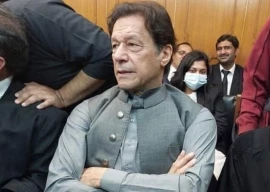
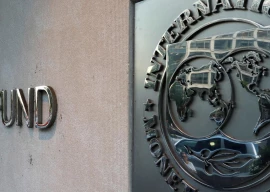

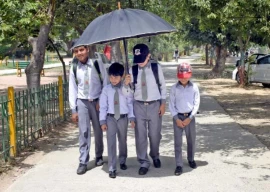
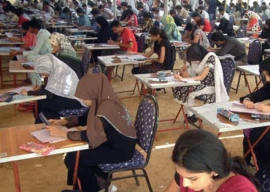

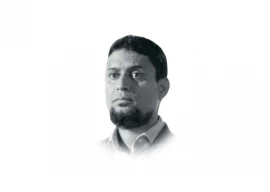

COMMENTS
Comments are moderated and generally will be posted if they are on-topic and not abusive.
For more information, please see our Comments FAQ